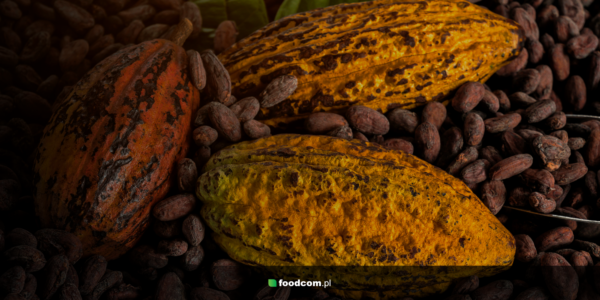- Potato starch prices may rise due to harvest shortages.
- Increasing demand for plant-based proteins in animal feed, with potential price stabilization through technological investments.
- Poor cocoa harvests and fluctuating sugar prices due to surpluses and imports, with an expected price increase in sugar before summer.
Hello partners,
Are you ready for the freshest news from Plant-based Industry?
In the latest issue of our Plant-Based newsletter, we take a look at important products such as starch, plant-based proteins, cocoa and sugar. We present current price trends, production challenges and market forecasts that show a sector in constant evolution. We also discuss global developments impacting the future of agriculture, from record exports to strategic plans to improve food security. We invite you to explore these important topics with us.
Products of the Week
Starches
In the run-up to the potato harvest, which is still several months away, rising demand could lead to a shortage, which in turn could lead to higher starch prices. This premature depletion of potato stocks poses a potential challenge for sectors dependent on potato starch, particularly in terms of production cost planning. In addition, we are already seeing an increase in potato seedling prices, which could push up starch prices further in the near future.
In contrast, the situation for corn starch appears to be less tense, as there is the possibility of cushioning future price fluctuations through imports. As a result, the industry can expect greater price stability for corn starch, which is crucial given the current market uncertainty.
Proteins
Plant proteins are increasingly used in milk replacers for calves thanks to their favorable amino acid profile and their impact on animal health and the environment. Increased demand can lead to price fluctuations, especially under the influence of changing climatic conditions. However, investment in the development of technologies for plant production and processing can help stabilize prices and make plant proteins more accessible and price competitive compared to traditional protein sources.
Cocoa
The cocoa market has reached a point where high price dynamics are emerging. Another year of worse than expected cocoa harvests is also contributing to this. This situation has a direct impact on the prices of basic cocoa products, such as cocoa mass and cocoa butter, which are continuously rising significantly.
Sugar
Recently, the sugar market has experienced significant price fluctuations due to surpluses among large producers and an increase in imports from Ukraine. In response to these circumstances, leading producers have disposed of their surpluses and temporarily halted production, which could lead to higher prices in the pre-summer period when demand for sugary products increases. Meanwhile, sugar prices in Spain remain stable due to lower market volatility while consumption remains high.
What else?
Europe
Brazilian corn exports reach a record 54.6 million tons in 2023, mainly due to high demand from China. However, the outlook for 2024 is challenging, as global supply and demand will change and lead to a slowdown in Brazilian exports. Misinterpretations of market conditions have led to unrealistic export expectations. Domestic prices are currently higher than export prices, hampering Brazil’s ability to export the expected surplus. Future market dynamics may depend on various factors, including global agricultural trends and currency fluctuations.
EU agriculture ministers have agreed to relax the rules in the face of widespread protests from farmers against the bureaucratic burden and unfair competition from non-EU countries. Farmers argue that excessive paperwork distracts from field work and that free trade agreements put them at a disadvantage compared to cheaper agricultural products from non-EU countries. At the heart of the protests, which were led by 900 tractors in Brussels, are demands for fair prices, an end to such agreements, market regulation and fair support for EU agricultural policy. Despite the measures announced, the farmers were disappointed and called for more concrete measures for fair competition and sustainable agricultural practices.
The Ukrainian Ministry of Agrarian Policy and Food proposes a food security strategy to increase agricultural production to 200 million tons, with a focus on increasing the production of cereals and oilseeds to 150 million tons. This plan aims to double agricultural exports and includes the promotion of livestock farming and the creation of private label products for world markets. With an estimated investment potential of 57 billion dollars, priority areas include green energy, logistics, product processing and engineering. The strategy aims to improve food security, ensure an adequate supply of safe food, support sustainable agriculture and reduce the incidence of disease.








